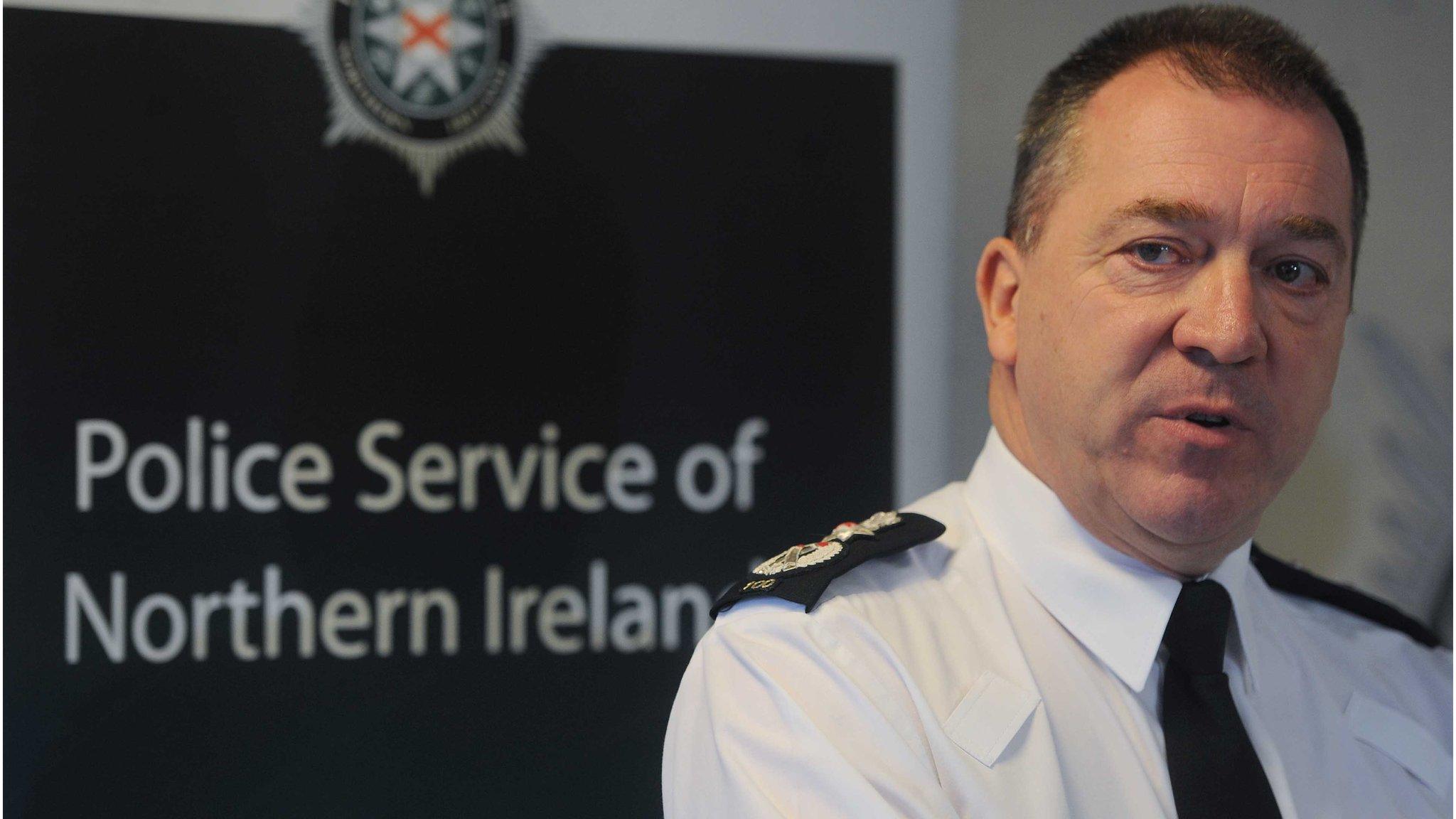George Hamilton outlines impact of reduced police budget
- Published
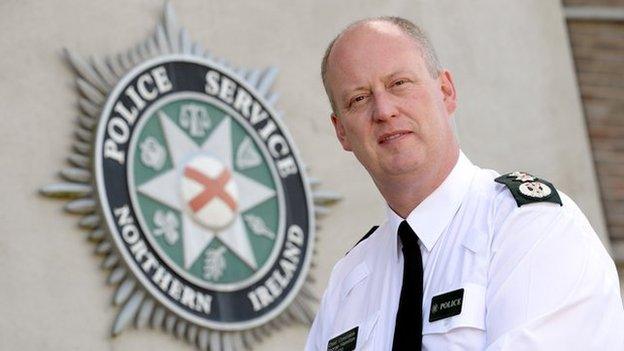
Mr Hamilton said, as a police officer, keeping people safe would always be his 'top priority'
Northern Ireland's chief constable has told the Policing Board the scale of the cuts facing his budget and how they are likely to impact on day-to-day operations. He outlined to BBC News NI where the cuts would hit, and the kind of services that would suffer.
The duty to keep people safe will always be my top priority
The Police Service, along with all other public sector organisations are facing unprecedented levels of budget reductions. Having already removed £47m from our budget this year, we are now being asked for a further £51.4m over the next six months.
To give you some perspective of the scale of these cuts, the total annual budget for our biggest of eight policing districts is £45m.
The level of cuts required will fundamentally change how and where policing is delivered in Northern Ireland, it is a change that will be seen and felt by the community.
Northern Ireland is a unique and expensive policing environment
As police officers we have a duty to protect life, preserve order, prevent crime and secure justice.
Fulfilling these duties on behalf of the community means dismantling the international criminal gangs involved in drugs and human trafficking; protecting the vulnerable behind closed doors from crimes such as domestic violence or child abuse; responding to the economic threat posed by cyber and financial crime; and providing visible neighbourhood policing in our community.
These are the duties expected of any police service across these islands, but policing Northern Ireland's post-conflict society goes wider than that.
In Northern Ireland, there is a small, but dangerous, number of violent dissident republicans who continue to plan attacks on police and pose a threat to the community.
I can say with confidence that the PSNI's desire to keep people safe is greater than their desire to do harm; however, there is no doubt that this threat places a substantial financial and human burden on the delivery of policing in Northern Ireland.
The PSNI also bears further additional costs from policing in a post-conflict society.
These include the daily requirements of responding to interface tensions; the significant costs of preventing and responding to serious public order resulting from increased community tensions; and the cost of dealing with the past.
The 2014 Northern Ireland peace monitoring report observed that policing had become "the shock absorbers for failures elsewhere".
Not only have we been shock absorbers in terms of holding the line between opposing communities; we have also "shock absorbed" a huge amount of cost in protecting life and maintaining order.
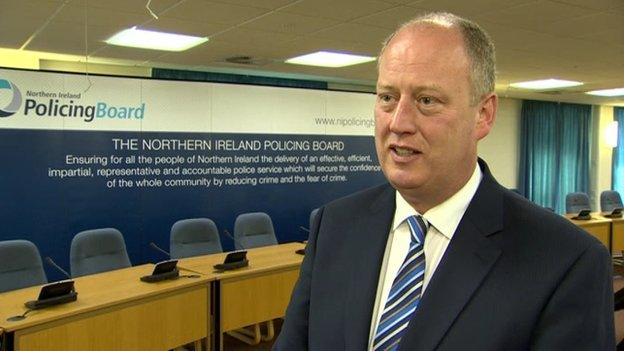
Mr Hamilton, who has been a police officer for almost three decades, took over as Northern Ireland's chief constable in June

BBC News NI's Home Affairs correspondent Vincent Kearney
Three months into the job, George Hamilton's honeymoon period is well and truly over. He paints a gloomy picture of the future of policing.
Less money and resources will result in fewer officers on front line duties, slower response times, and a radical rethink about how the PSNI fulfils its wide range of roles.
There is no attempt to sugar coat the message. The chief constable makes it clear that the cuts imposed on the PSNI means "it will no longer be possible to deliver the same level of quantity of policing services".
As a result, he says some areas of policing will be reduced or stopped, particularly in rural areas. That will cause alarm for people living in many places where there are already complaints about the level of service the police provide.
His assessment is a stark warning about the impact of the cuts, but the chief constable is also careful to provide some reassurance, pointing out that resources will be deployed where demand is greatest.
The last thing he wants to do is create a sense of alarm or panic, or give any encouragement to criminals and dissident republicans, who would seek to exploit any weaknesses in the ability of the PSNI to do its job.
Mr Hamilton stresses that keeping people safe will always be the top priority, but it is clear that finding the resources needed to do so will not be easy.

What can police stop doing?
With cuts of this magnitude, it is no longer possible to deliver the same level or quantity of policing service across all these demands. These financial pressures will require me to prioritise service delivery to an extent never experienced before in Northern Ireland.
I will work with the Policing Board and the Department of Justice on how we reduce demand on policing and in assessing what areas of police activity will be reduced or stopped.
Resources will move to where the demand is greatest
Policing is changing and the public will see and feel a difference as resources move to where the demand is greatest. The operational outworking of such a pure demand-led model could adversely affect the level of reassurance that policing delivers in rural areas.
The reality is, we will have a smaller organisation in the future and this will mean less visible policing available in our community. Policing will have to focus on the areas of Northern Ireland where vulnerability and need is greatest.
With less capacity we will have to prioritise risk to life and emergency calls. It is already the case that calls from the community that are not an emergency are being dealt with in slower time through the use of scheduled appointments.
Keeping the community at the heart of everything we do
As chief constable, one thing I can be utterly confident of is the leadership and dedication of my officers and staff in striving to meet these challenges. We will do our best to adapt to these new pressures and we will keep the community at the heart of everything we do.
As a public servant, I am mindful of my duty to produce a balanced budget but as a police officer, the duty to keep people safe will always be my top priority.
- Published2 October 2014
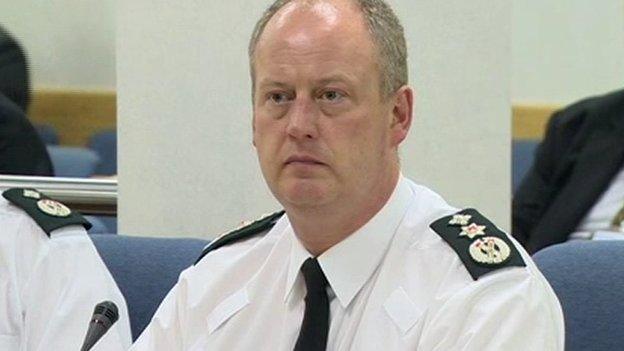
- Published30 June 2014
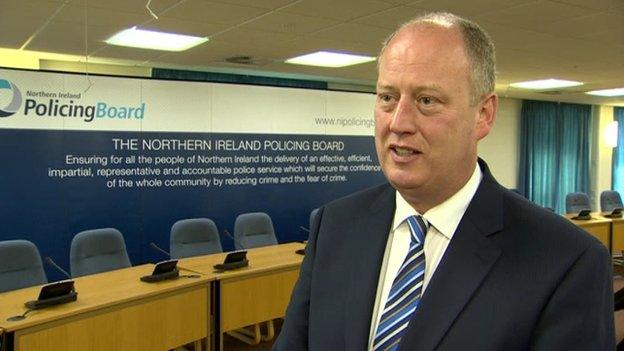
- Published27 June 2014
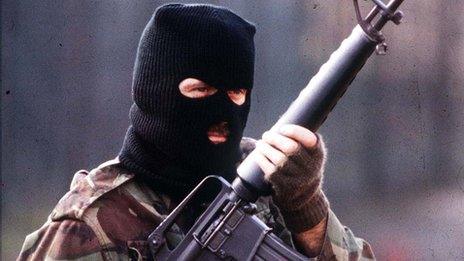
- Published30 May 2014
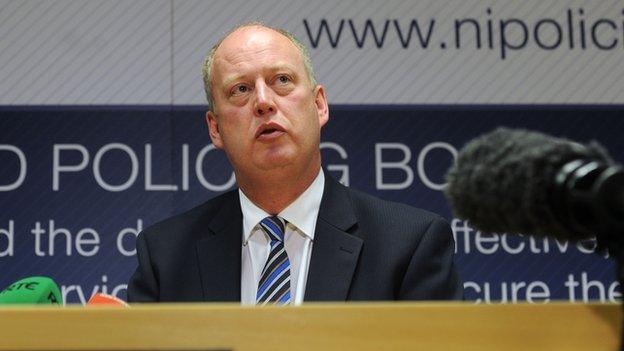
- Published22 January 2014
